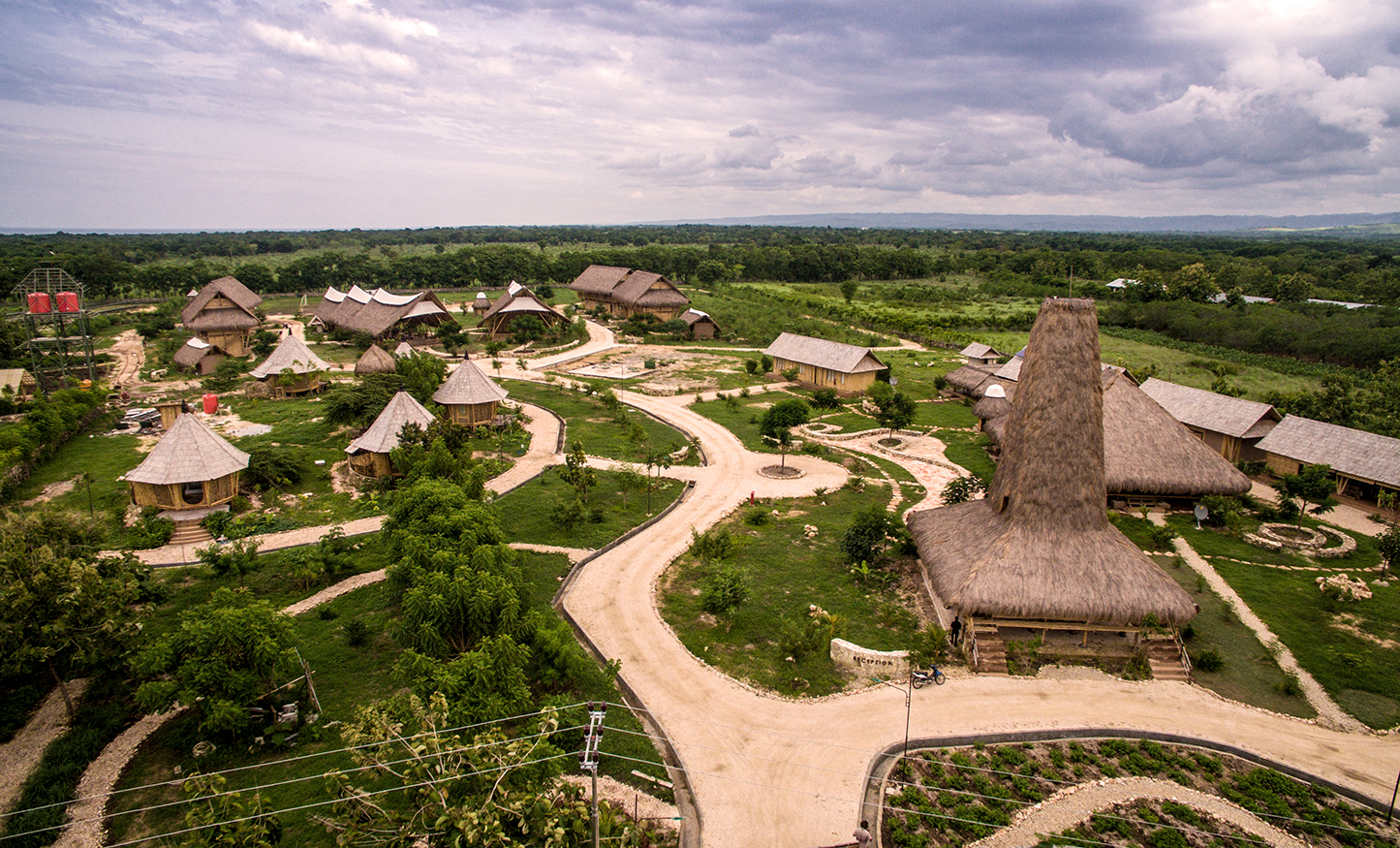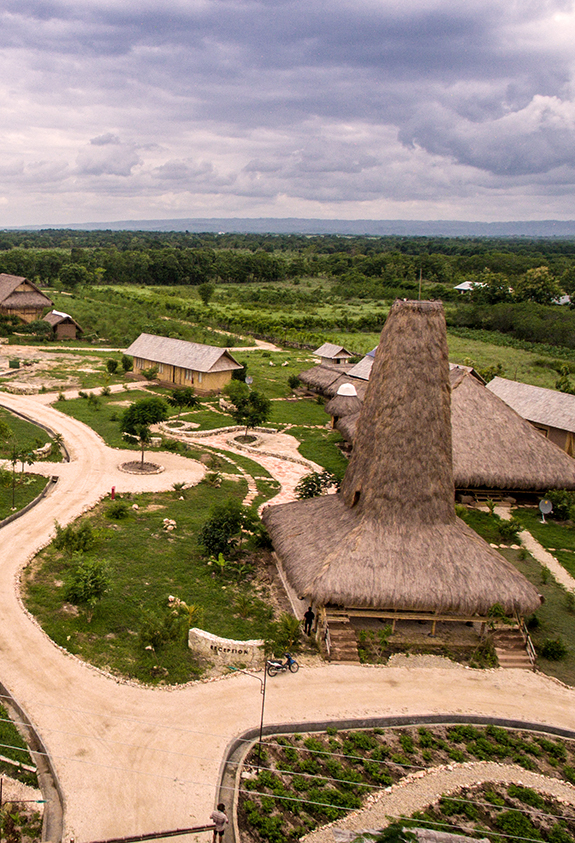


Ever wonder what it might be like to run a non-profit hospitality organization where the goal is not just to please guests, but to improve the local population’s access to sustainable food and education as well? Meet Inge de Lathauwer, the founder of Sumba Hospitality Foundation and discover what a typical day is like running an eco-tourism site and hospitality school.
After many years consecrated to motherhood and philanthropist activities, Inge de Lathauwer went back to her Glion roots to create a non-profit hospitality organization that models sustainable tourism development through education and preservation of local resources and culture. For over a year now, Glion’s student-led Charity Committee has been raising funds for Sumba and bringing the issue of sustainable tourism development to the forefront of Glion’s Student Government Association.
In this interview with Inge, we learn more about the day-to-day challenges and inspirations of running a non-profit hospitality organization.
What is a typical day like for you? What are the challenges? The pleasures?
“I am travelling constantly between Brussels and Sumba,” said Inge, and she gave us an outline of her days in Sumba:
“5:30 -6:00am – I wake up with the sun. I make a tour of the campus, 24 bamboo buildings on 5 hectares of land and am greeted by 40 smiling faces from the students getting ready for their shower.
7:00am – We all have breakfast together in the restaurant.
8:00am – Our first meeting starts with the team, teachers and volunteers, to explain the program of that day, jobs to finish/follow up and eventually guests arrivals and visits.
8:30am – Classes start and I continue my meetings with our Executive Director, Lauren Bruggemans, responsible for the whole hospitality part and Redempta TeteBato, Head of our Foundation, native of Sumba. We do long term planning and set up meetings with local government and neighborhood committees to discuss different matters.
During the morning, I sometimes follow different classes to understand better the way of teaching and the levels of the students.
12:00pm – Afternoon
After lunch, there is a quiet period/break where most of students and staff take a rest because it is very hot and the days are very intense.
We have a lot of visitors who want to know more about the project or want to get involved too so we need to schedule and facilitate.
Regular visits to the local bank, market and government officials are part of the routine.
Internet is not widely available and at the school it’s very slow, so most matters are handled verbally, and meetings usually are very long. People need a lot of time to talk things through and we need to adapt to their pace of life.
I also make daily tours of the campus with our engineer to check on security, maintenance and the farm to see the progress and needs.
5:30pm – We give free English classes for the local Community.
7pm – Dinner and a drinks for the team in our bar to talk further about things that happened that day, we also have movie nights or karaoke! .
9 -10:00pm – The whole campus is quiet! The nights are beautiful with thousand stars at the sky and very quiet.”
“In Belgium, my days are more administrative and research based, connecting with international organizations who can help us move forward. I follow up daily with Sumba: on construction and technical issues, having regular Skype meetings with responsible staff in the school, checking on progress of the students, promoting our hotel and restaurant and reaching out to other local organizations for daily support,” she said.
About Sumba Hospitality Foundation
To get an idea of how awesome Sumba Hospitality Foundation truly is, watch this short video from their Youtube channel.
Sumba Hospitality Foundation promotes sustainable tourism on the wild, little Indonesian island of Sumba, and it serves as a model for tourism development in other places, by providing education as a foundation for sustainable practices.
“In 2016, we have received very positive feedback and support from the local and National government. They are very interested in the project and our holistic approach, teaching more than skills but also attitude, self-confidence and eye for detail. The successful connection of all the buildings to our solar farm (288 solar panels) made us 100% of the grid, no longer having blackouts. We recycle 95% of our waste water with our treatment system, which is very important on this dry island. We want to be an example for future investors to promote green energy.”
“This year the goal is to inspire new investors to develop the island in a sustainable and responsible way. Continue our path towards excellence in education and creating awareness of preserving the environment. Creating a sustainable tourism development plan for the island and as an example for other islands or regions around the world,” said Inge.
Advice for the future founders of non-profit hospitality organizations
When asked how her experience and studies at Glion Institute of Higher Education, as well as her connections through Glion’s Alumni Association have helped her to succeed in this project, Inge said:
Support Sustainable Tourism with Glion’s Charity Committee Events for Sumba
To learn more about Sumba Hospitality Foundation, and discover the picturesque island of Sumba, visit their website.
The Glion Charity Committee is always looking for volunteers and partners for their fundraising activities. You can find the latest news in the GCC’s Facebook group.

















